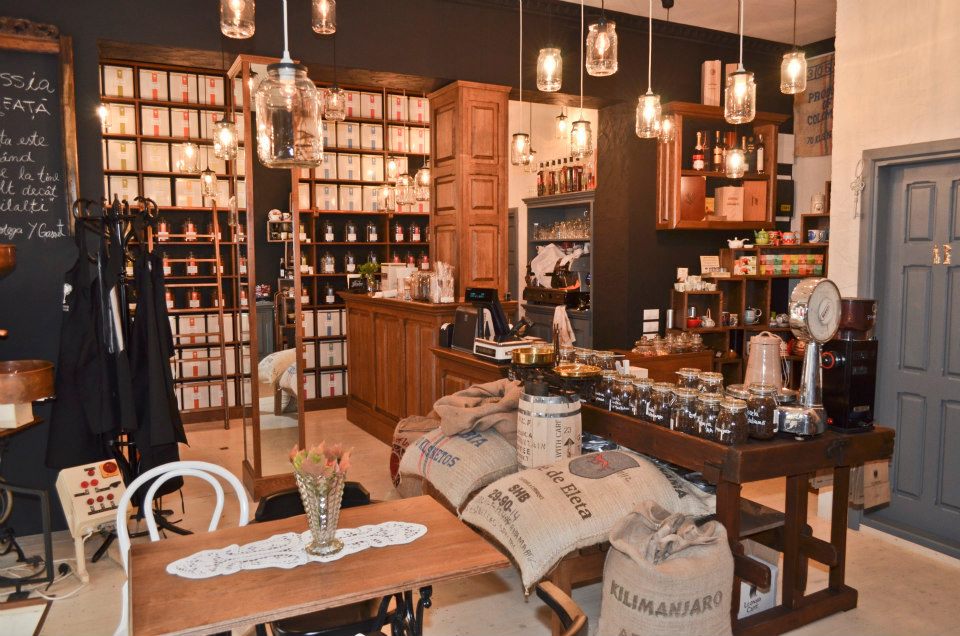Opinion: What I learned from a coffee shop owner


I recently discovered that I sometimes tend to be a picky consumer, and if something quite small bothers me with a service, a company, or a place, I rarely return. I take consumer decisions emotionally most of the time, and probably retail experts would argue that most consumers are like this.
But if certain conditions are met, I will be convinced to return to a place even if everything was not according to my wishes. On a recent visit to a newly opened coffee/tea place in Bucharest, I realized what those conditions are which are likely to make me and probably many others return.
The place is called Camera din fata (the Room in the front in a rough translation, the expression used in the countryside for the room of the house kept spick and span for guests). The small place, which probably sits around 20 people maximum, is tucked away behind the boulevard near Romana square, on Mendeleev street. It was opened three weeks ago and it looks fantastic. It has vintage photos on the walls, a wall full of tea cups and lamps made of transparent jars hanging from the ceiling. I was charmed. But they had no available seats...It could have easily been a "sorry but we have no tables free, please come back another time" situation, in which case we would have never come back. But Paul, the owner himself, came and first asked us how long we planned to stay, as he had a free table that was only reserved for later on. We were not planning to stay very long so it was acceptable and we took it.
Lesson 1: the owner talks to customers. Paul Licsor, one of the four owners, helped us and made an exception so that we can still stay at his place (and spend some money there, plus maybe spread the good word about it). It made a great difference, and even though he did not say he was the owner, we could sense he was. Paul seems to always be there, and I heard people saying he is so involved that he makes and sells a sorbet based on his grandmother's recipe.
This kind of service is hard to replicate and mimic, so the four owners plan to open only three other locations, and not risk turning into an impersonal chain.
Then the waitress – who was nice and smiling even though she had to serve almost everyone at the same time, while organizing the place for some people who had reservations – took the time to explain the menus, which were shaped as old fashioned black and white newspapers, which we got to take home (they even insisted on us taking them). Lesson 2 – great service to begin with.
Just before we were planning to order, the owner came and apologized, but something had changed and they had to move us to another place, which he already advertised as the best place 'in the house', that everyone loves. There was not a lot of empty space left so we started wondering where he will place us. There was a small space, enough for two people, almost behind their counter. He didn't just seat us there. He told us the story of that counter – a former carpenter's table - where somebody used to work years ago. He then went on to tell us the story of the place, a short story about his partner Mihai Florescu, a famous coffee specialist in Bucharest and the quarrel with another famous Florescu. Bottom line – the owner told us some stories and got us more involved. Lesson 3 – personal service, great stories and involving the customers in the story of the place go hand in hand. The new seating place was not great but we felt we were somehow part of the family, so we did not mind.
When we ordered, we already liked it there that much, that they managed to easily convince us to add some sweets to the order, even though we initially only wanted some tea. Lesson 4 – great service brings more money in the end. All the trouble of keeping people happy and treating them nicely does not only add up to being known for friendly service, but to takings at the end of the day.
They could have let us in peace to drink our tea – and for most of the time they did - but they did not forget to ask us whether we were comfortable and whether everything was good.
Lesson 5 – Don't desert the customer after you raised his spirits; keep the same level of attention from beginning to end.
I watched the guy – he did that with everyone, and all the while we were there, he personally greeted everyone and talked to almost everyone in his place. It was only normal and in line with the spirit of the place. A cozy coffee and tea shop which smelled a lot like home – and like freshly minced coffee – will lure you in, but the people who run it will keep you there and convince you to return.
All that to say that if you treat your customers well, talk to them and give them stories, they will overlook the small bad things which are likely to happen to any business, anywhere.
Corina Chirileasa, corina@romania-insider.com
(photo source: Camera din fata's Facebook page)












